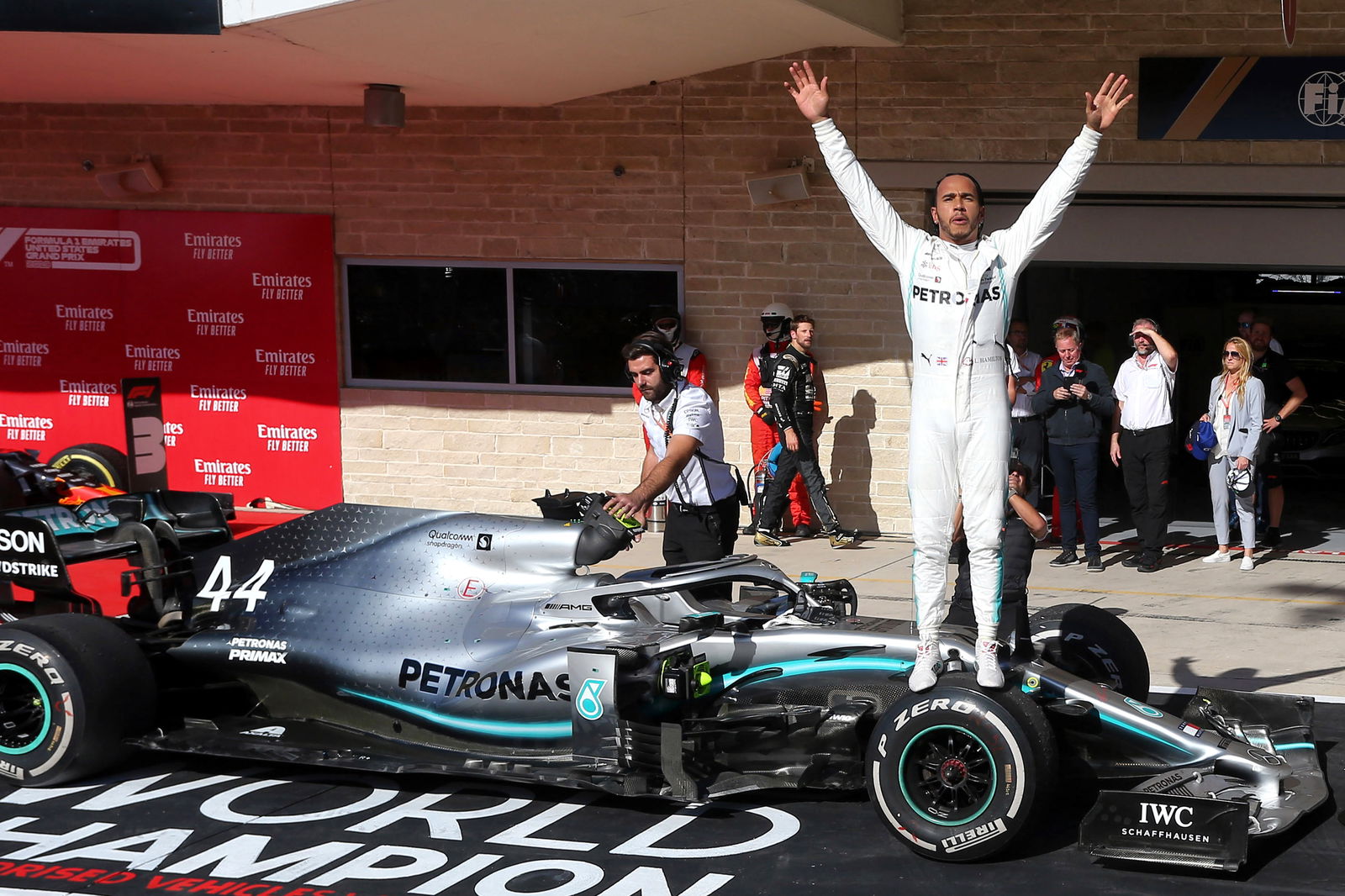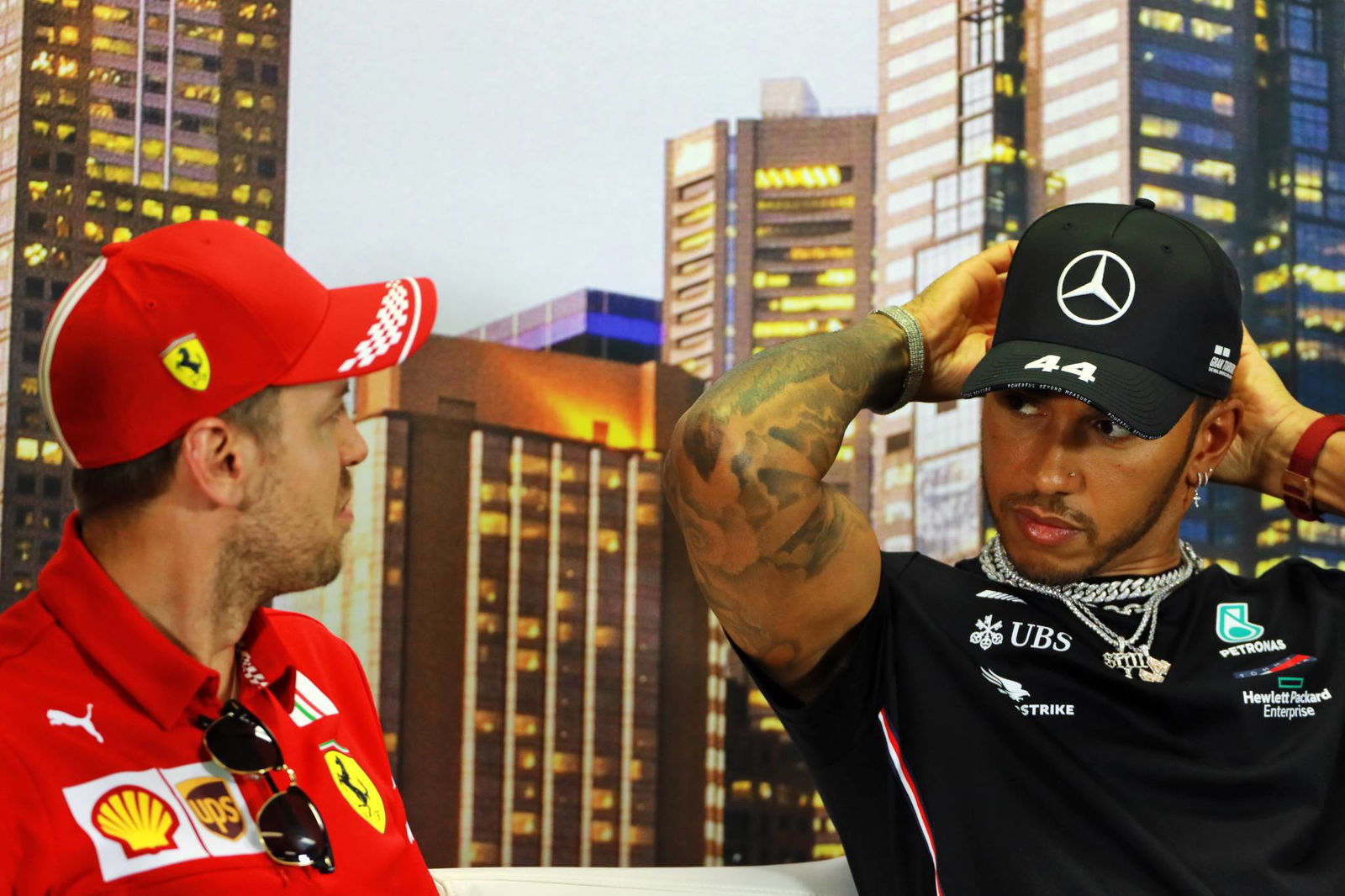Lewis Hamilton's rise from karting pauper to Formula 1 king
From humble beginnings, Lewis Hamilton has forged one of the most successful careers in Formula 1 history as a six-time world champion. We’ve charted his path to glory.
Having enjoyed a stunning ascent up the karting ladder, Hamilton’s first ties to F1 began at the age of 13 when he was signed to the McLaren young driver programme in 1998 by Ron Dennis, who included an option for a future seat at the British F1 team.

From humble beginnings, Lewis Hamilton has forged one of the most successful careers in Formula 1 history as a six-time world champion. We’ve charted his path to glory.
Having enjoyed a stunning ascent up the karting ladder, Hamilton’s first ties to F1 began at the age of 13 when he was signed to the McLaren young driver programme in 1998 by Ron Dennis, who included an option for a future seat at the British F1 team.
Multiple championship titles throughout junior single-seaters in Formula Renault and Formula 3 resulted in Hamilton being thrust into a maiden GP2 campaign with reigning champions ART Grand Prix, who had taken Hamilton’s childhood friend and rival Nico Rosberg to the crown the previous year.
Hamilton instantly starred in GP2. Standout performances came with a double victory at Silverstone and recovery drive from the back-of-the-grid to the podium at Istanbul on his way to beating Nelson Piquet Jr to the title by 12 points. Hamilton recorded five wins across the course of the year, more than any other driver.
We’ve got a feeling this kid is going to go @LewisHamilton
— Mercedes-AMG F1 (@MercedesAMGF1) March 27, 2020
x @FIA_F2 pic.twitter.com/smAXBrT4LJ
Hitting new heights in F1
Hamilton was rewarded with a race seat at McLaren to make his F1 debut during the 2007 season, which saw him partner reigning two-time world champion Fernando Alonso.
Hamilton immediately impressed by finishing on the podium on his debut in Australia before claiming his first F1 race win at the Canadian Grand Prix in just his sixth start.
Further victories followed at the next race in the United States, Hungary and Japan as Hamilton went on to finish in runner-up spot in the world championship to Kimi Raikkonen by just a single point. In a record-breaking debut campaign, Hamilton achieved the most consecutive podium finishes from debut (nine), the joint-most wins in a debut season (four) and the most points in a debut season (109).
The 2007 season was marred by rising tensions between Hamilton and Alonso, which ultimately brewed into an all-out civil war and led to Alonso’s departure back to Renault at the end of the year. Hamilton signed a multi-million-pound contract to stay with the Woking outfit until 2012.
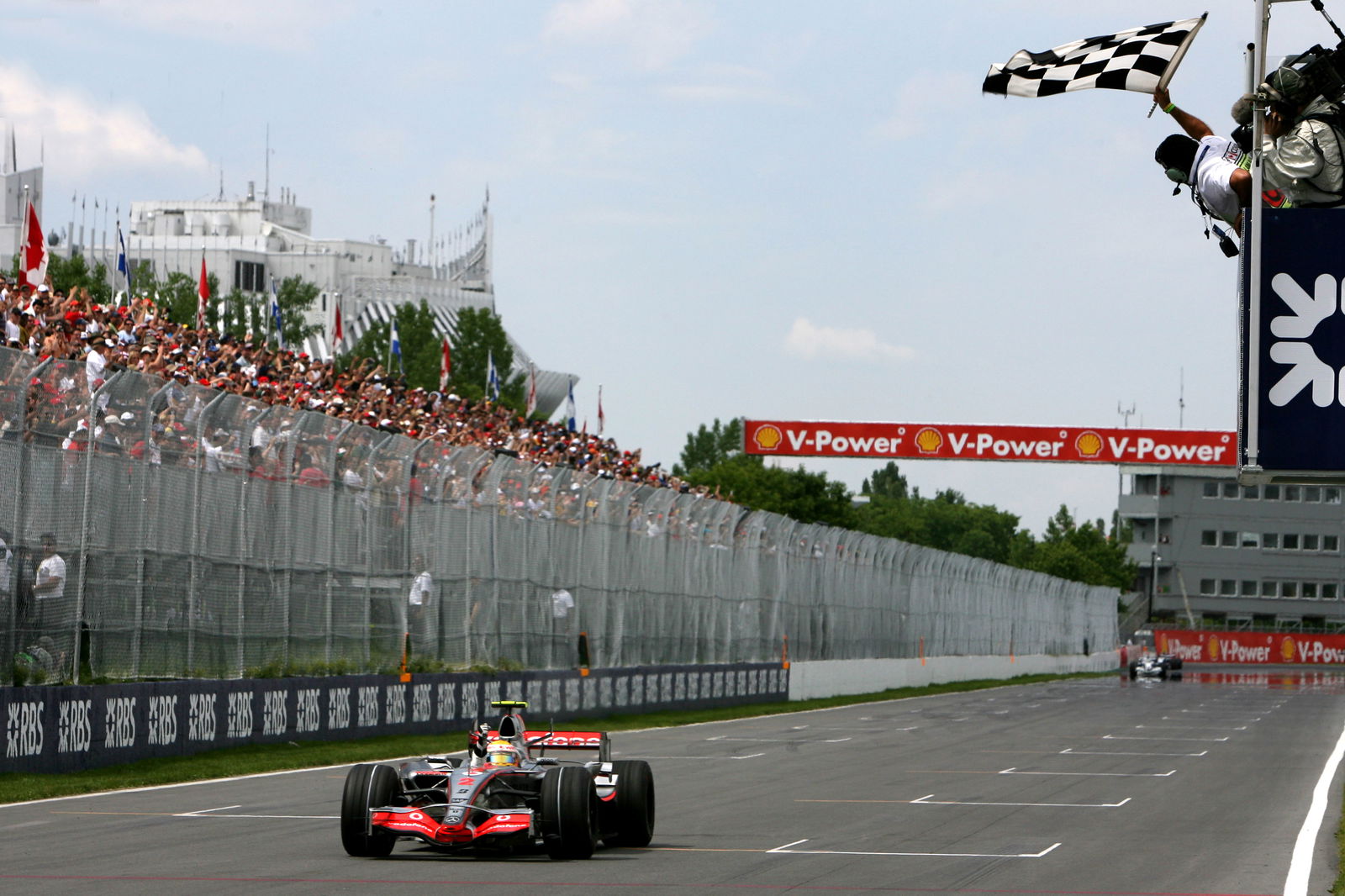
Hamilton makes history
In 2008, Hamilton would go one better as his success continued. He started the year in perfect fashion by winning the season-opener in Melbourne and followed that up with four more victories across the year, including first career wins at Monaco, his home event at Silverstone, Germany and China.
Hamilton achieved a total of 10 podiums and claimed his first drivers’ world title by the skin of his teeth on the last lap of a thrilling final race of the season in Brazil, piping home-favourite Felipe Massa to the crown by a single point in one of the most nail-biting climaxes of all time. Hamilton became the then-youngest F1 world champion in history at the age of 23, as well as being the first British driver to win a drivers’ title since Damon Hill in 1996.
McLaren and Hamilton’s fortunes nosedived in 2009 after major regulation changes shook up the pecking order and left McLaren chasing their tails for much of the year while it was stuck in the midfield.
The campaign started on a negative note with Hamilton becoming embroiled in the ‘Spygate’ saga while success was sparse. Hamilton scored McLaren’s first win of the season at the 10th round in Hungary and managed another victory in Singapore as performance improved, before ultimately concluding a difficult year fifth in the championship.
2010 coincided with the arrival of reigning world champion Jenson Button to McLaren as the team boasted an all-British line up of consecutive 2008-09 world champions. While McLaren returned to a more competitive state and Hamilton enjoyed multiple podiums and race wins, Red Bull began its rise to promise as F1’s new superpower with Sebastian Vettel claiming the first of four straight titles.
Hamilton remained in title contention until the final round at Abu Dhabi but was left to settle with fourth.
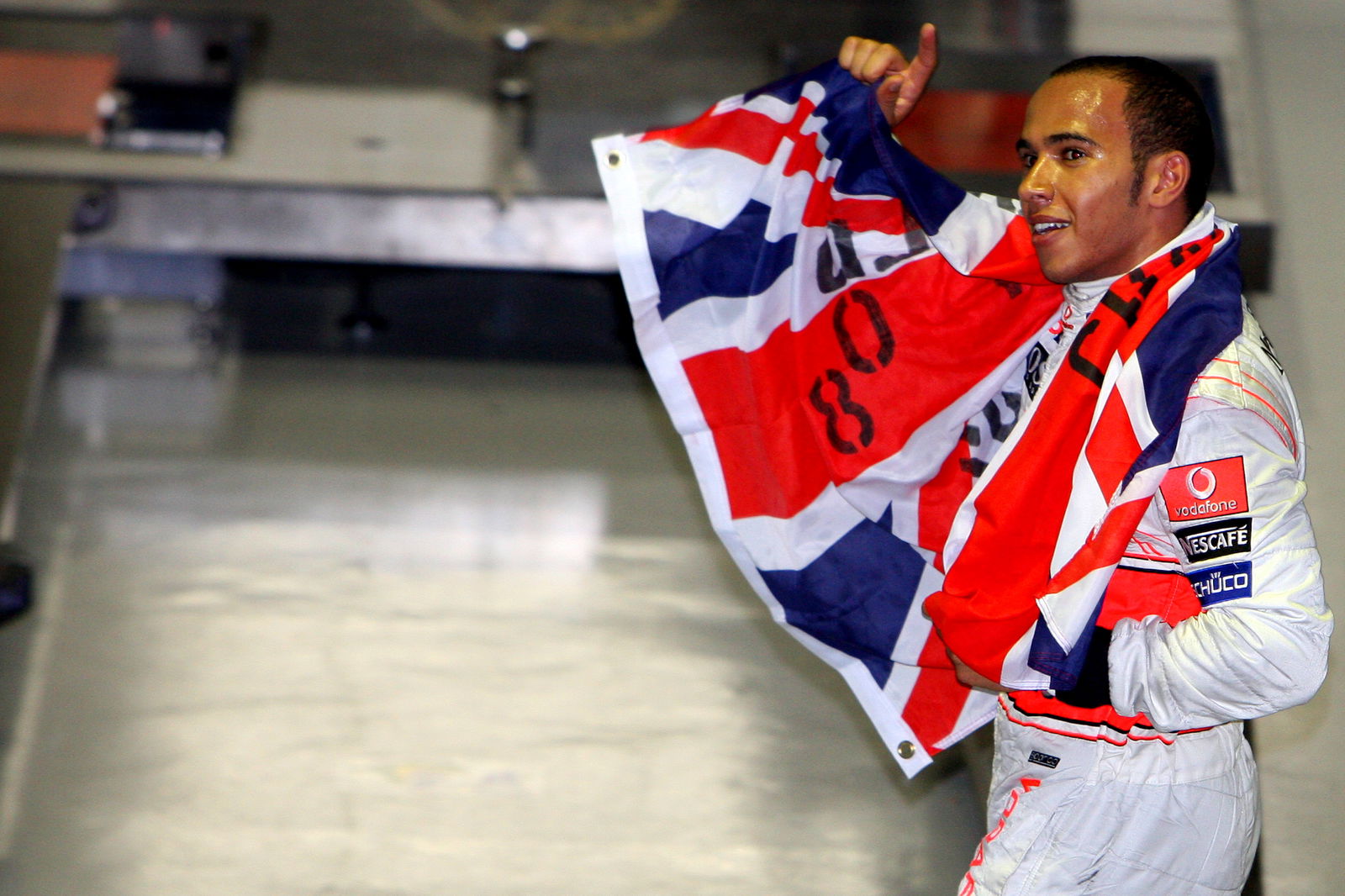
Hamilton’s McLaren decline
Hamilton’s form dipped in 2011 as he endured personal struggles off the track with his relationships with then-girlfriend Nicole Scherzinger and his father, Anthony, declining, while battles on the track saw him clumsily clash with 2008 title rival Massa on numerous occasions. Hamilton was still able to churn out excellence with brilliant victories coming in China, Germany and Abu Dhabi, but all in all, 2009 proved to be a year of frustration. Arguably the worst of Hamilton’s entire career ended with him being beaten in the championship by a teammate for the first time as Jenson Button took runner-up spot behind Vettel, with Hamilton a low-key fifth.
2012 kicked off promisingly as McLaren’s MP4-27 proved to be fast out of the blocks but it took Hamilton until Canada to finally realise McLaren’s full potential as he became the seventh different victor from the opening seven rounds. Hamilton scored three further wins, including becoming the first to win at the inaugural United States Grand Prix at COTA having prevailed in a duel with Vettel, who would go on to become champion once more.
Hamilton was all but knocked out of title contention after retiring from the lead of the Singapore Grand Prix, which not only marked a turning point in the championship race, but also in the Briton’s career path.
Around this time, discussions began with Mercedes’ hierarchy as Hamilton’s frustrations at McLaren grew, with Niki Lauda and Ross Brawn convincing Hamilton to join the project at the German manufacturer as replacement for Michael Schumacher, who retired from the sport for a second time.
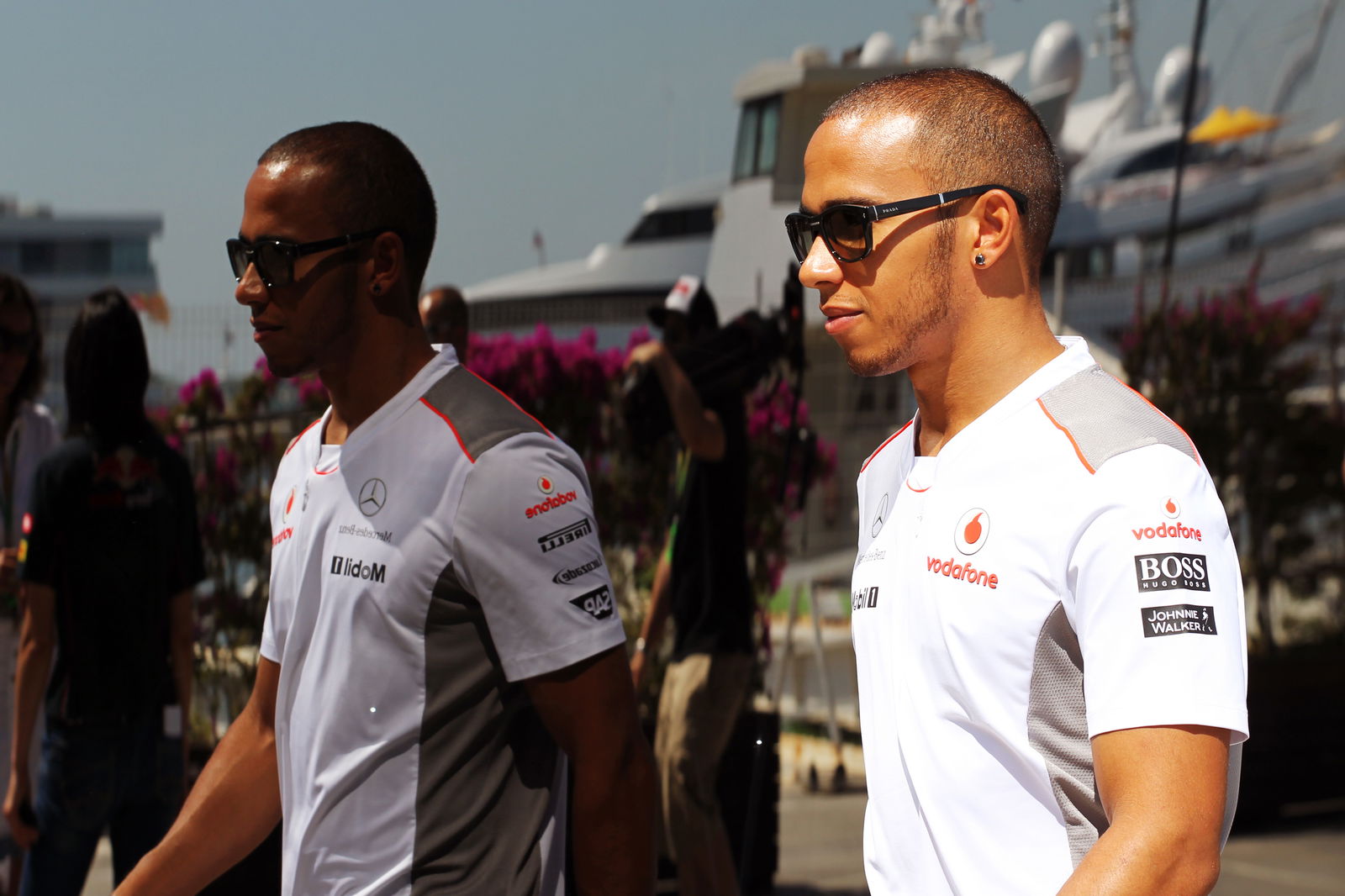
The move to Mercedes
In a first transitional year with Mercedes, Hamilton claimed five pole positions and won the 2013 Hungarian Grand Prix as he beat teammate Rosberg to fourth in the championship standings, despite the German managing two victories.
A major regulation change came in 2014 with the switch to V6 hybrid engines, something which Mercedes had been pilling its focus on since luring Hamilton to the team. Its hard work paid off as it became the dominant force with a large power advantage, as Hamilton and Rosberg went head-to-head in an all-silver fight for the title.
Despite suffering some reliability setbacks, most notably in Australia, Germany and Hungary, Hamilton ultimately triumphed to his second world championship after winning 11 times. Early sparks occurred in the Hamilton-Rosberg rivalry, which came to a head with a collision early on during the Belgian Grand Prix. Nevertheless, Mercedes stormed to both world titles.
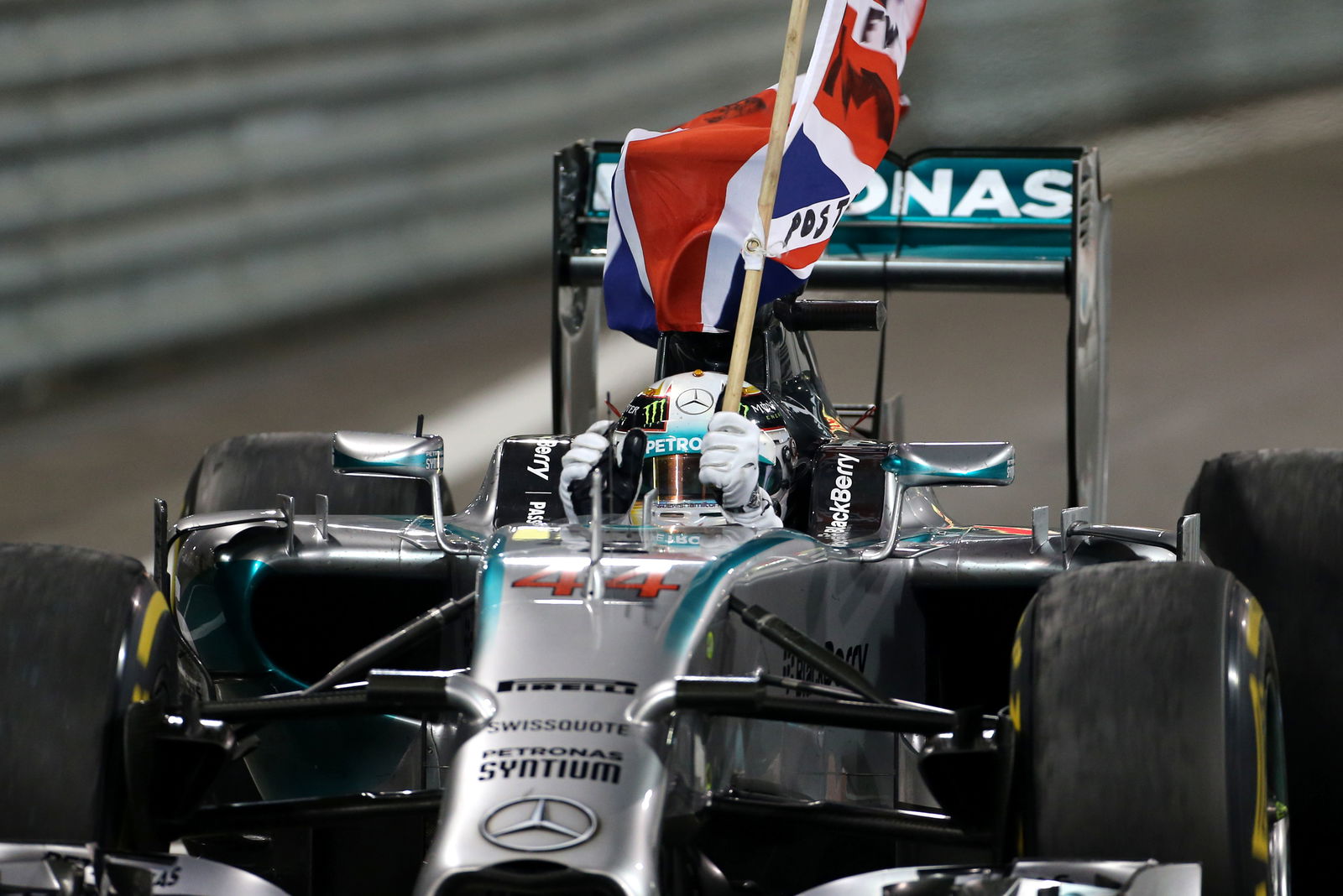
2015 resulted in more of the same as Mercedes once again proved the class of the field in both championships, with Hamilton notching up 10 victories en route to comfortably sweeping Rosberg aside for his third world championship title, a feat that moved him level with his idol Ayrton Senna. Hamilton sealed his latest F1 success in the United States, but Rosberg rallied from the disappointment of a costly mistake while leading to round out the season with a hat-trick of wins.
Rosberg converted his end-of-2015 momentum into the start of 2016 by winning each of the opening four races and established a healthy early buffer in the championship as Hamilton faced some early setbacks. The pair took each other out while battling for the lead on the first lap of the Spanish Grand Prix - paving the way for Max Verstappen’s sensational maiden win on his Red Bull debut - before another last-lap clash followed in Austria.
Hamilton fought back from a big deficit in the middle of the campaign with six victories from seven races across May to July, before Rosberg hit back with an important trio of wins in Belgium, Italy and Singapore. A dramatic engine failure while dominating the Malaysian Grand Prix and poor start in Japan acted as huge blows to Hamilton’s title hopes but he fought to the very end, winning the final four races of the year to end up missing out on the championship to Rosberg by just five points.
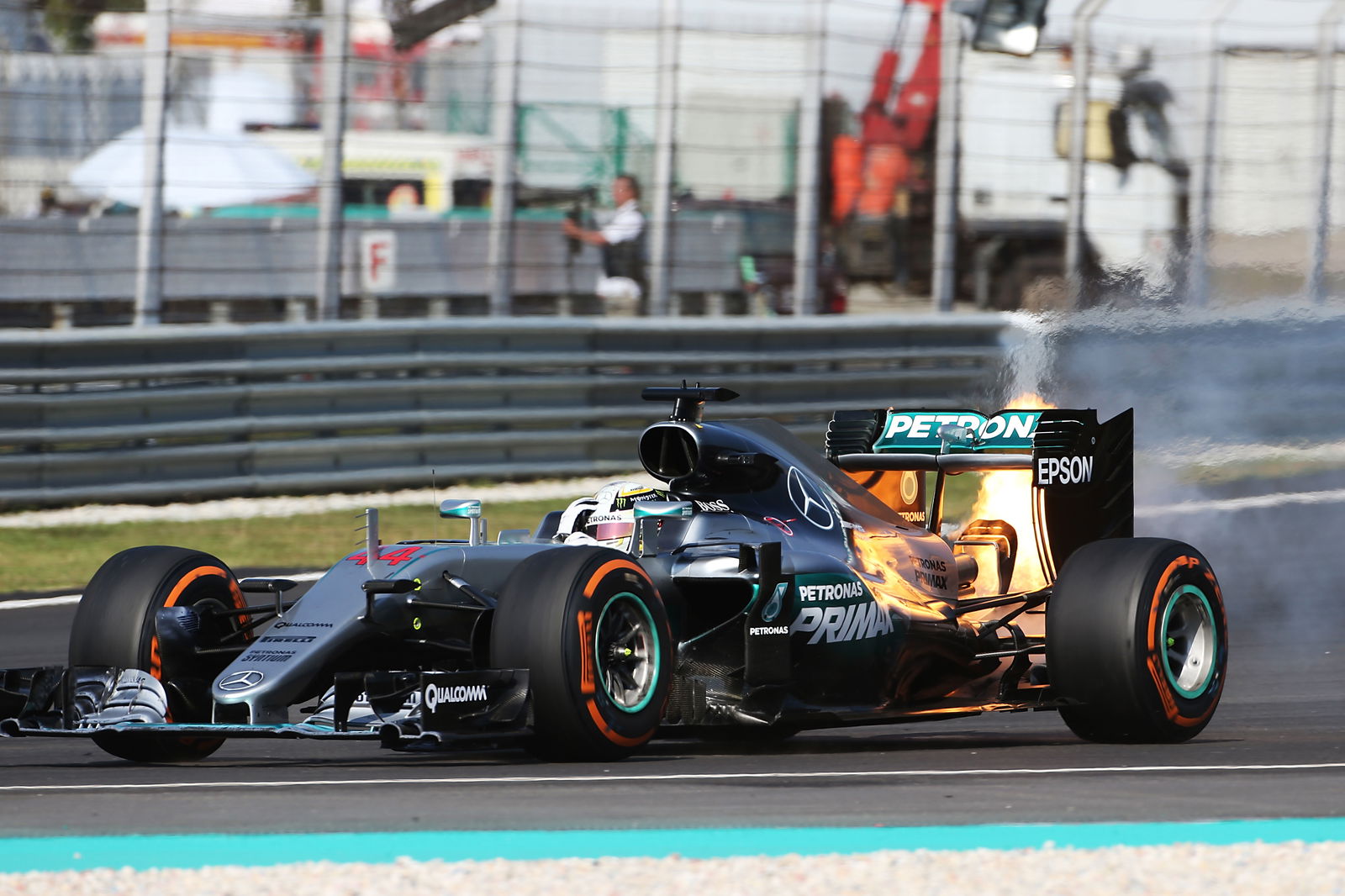
Rosberg’s retirement and the arrival of Bottas
Rosberg’s bombshell retirement just days after winning his maiden world title meant Hamilton would have a new teammate for 2017, with Mercedes selecting Valtteri Bottas as Rosberg’s replacement.
Hamilton bounced back from his defeat of 2016 by mastering the new-for-2017 cars and once again acted as the driving force behind Mercedes’ charge to the titles. Ferrari closed the gap over the winter and emerged as Mercedes’ closest rivals, but Hamilton wrestled back early momentum from Sebastian Vettel to secure a fourth world title with a stunning second half of the campaign. Hamilton won nine times altogether, while a capitulation from Ferrari during the Asian leg of the season ended the Scuderia’s hopes.
2018 looked set to be a closer title fight as Hamilton, Vettel and Red Bull’s Daniel Ricciardo shared out two wins apiece through the opening six rounds. Vettel held the championship lead until Silverstone, but Hamilton was again supreme in the second half of the year. The turning point came in Germany when Vettel crashed out of the lead in wet conditions and Hamilton won from 14th on the grid, enjoying a 38-point swing in his favour.
Hamilton never looked back and took seven victories from the remaining 10 rounds while Vettel embarked on a run of costly spins that accelerated his eventual defeat and Hamilton’s crowning moment for the fifth time, which he duly sealed in Mexico with two races to spare.
Despite Ferrari enjoying a strong pre-season and being tipped as favourites for the 2019 championship, it was Mercedes who once again proved the team to beat when the season got underway. Following a confidence-shattering winless 2018 campaign, a revitalised Bottas put in a stronger challenge to Hamilton and led the championship after winning the fourth race in Baku.
Hamilton remained undeterred by the resurgence from the dubbed ‘Valtteri 2.0’ and claimed four victories on the bounce in Spain, Monaco, Canada and France to assert a strong championship lead. As Bottas faded, new challengers came in the shape of Max Verstappen and Charles Leclerc, but Hamilton was near-perfect on his way to a sixth world championship crown, winning 11 of the 21 races in 2019 and concluding the season with a comprehensive performance in Abu Dhabi.
Now 35, Hamilton stands on the verge of equalling Schumacher’s all-time record of seven world championships and could go on to surpass the German’s tally of 91 grand prix victories.
Hamilton will have to be patient, however, with the coronavirus pandemic delaying the start of the 2020 season until further notice.
